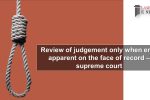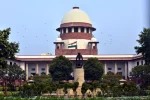Financial Capacity of the Complainant and Cheque’s Authenticity Central to Acquittal: Punjab and Haryana HC Upholds Acquittal in Cheque Dishonour Case

In a significant judgment, the Punjab and Haryana High Court, presided by Hon’ble Mr. Justice Harpreet Singh Brar, upheld the acquittal of the respondent in the much-discussed cheque dishonour case, CRM-A-3767-MA-2018. The decision, delivered on March 21, 2024, focused on critical issues regarding the financial capacity of the appellant and the authenticity of the cheque involved.
Legal Point:
The appeal was lodged against the acquittal of the respondent under Section 138 and 142 of the Negotiable Instruments Act, 1881, in conjunction with Section 420 of the Indian Penal Code. The appellant’s primary contention was the alleged misuse of a cheque and the respondent’s insufficient funds.
Facts and Issues:
The case stemmed from an incident in February 2016, where the respondent was accused of borrowing Rs. 2,00,000 from the appellant and issuing a cheque that was later dishonoured due to insufficient funds. The appellant claimed the amount was not repaid despite legal notice, leading to the initial complaint.
Court Assessment:
Financial Capacity Analysis:
The Court closely scrutinized the appellant’s claimed financial capacity to lend the amount. The appellant’s income tax returns indicated annual incomes significantly lower than the amount lent, casting doubt on his ability to advance such a loan. This aspect critically weakened the credibility of the appellant’s claim.
Cheque Authenticity Examination:
Discrepancies in the cheque, notably in handwriting, pointed towards potential manipulation by the appellant. This raised questions about the appellant’s intentions and the cheque’s legitimacy.
Appellate Review Principles:
The High Court reinforced the principles governing appellate intervention in acquittal cases. The Court underscored the need for respecting the trial court’s judgment, especially when it aligns with one of two plausible interpretations, the one favoring the accused’s innocence.
Judicial Discretion:
The Court found the trial court’s findings neither perverse nor illegal, warranting no interference at the appellate level. Hence, the appeal was dismissed, and the acquittal upheld.
Decision:
In light of the above assessments, the Court denied the appeal, affirming the trial court’s acquittal of the respondent. The Court underscored the principle of the presumption of innocence that gets further reinforced post an acquittal.
Date of Decision: 21.03.2024.
RAVI KUMAR VERSUS ANU






